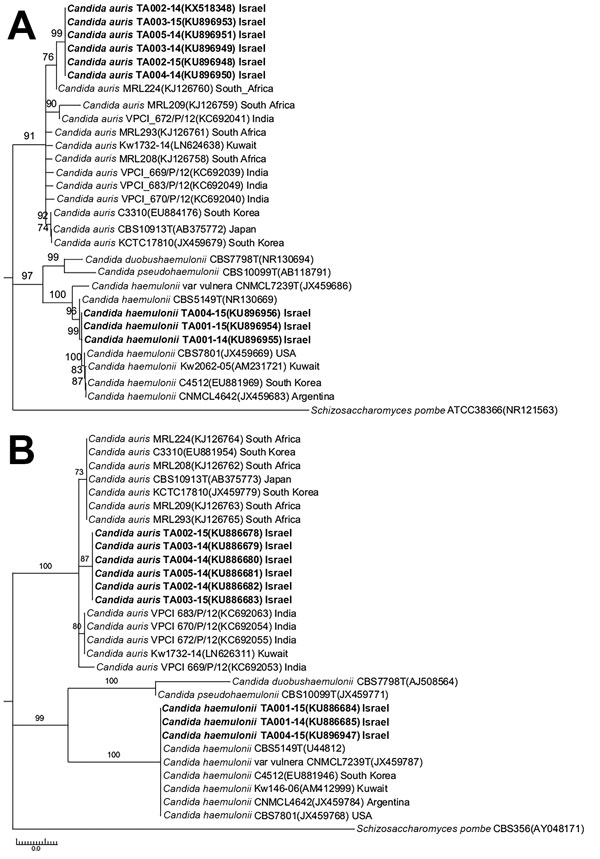Volume 23, Number 2—February 2017
CME ACTIVITY - Research
Multidrug-Resistant Candida haemulonii and C. auris, Tel Aviv, Israel
Figure 1

Figure 1. Phylogenetic relationships of Candida auris and C. haemulonii strains isolated in Tel Aviv, Israel, compared with reference strains. Phylogenetic trees were generated from internal transcribed spacer (A) and D1/D2 domain of the ribosomal DNA large subunit sequences (B). The percentage of replicate trees in which the associated taxa clustered together in the bootstrap test (500 replicates) is shown next to each branch. Bold indicates strains from Tel Aviv. GenBank accession numbers are provided in parentheses. Scale bar indicates nucleotide substitutions per site.
Page created: January 12, 2017
Page updated: January 12, 2017
Page reviewed: January 12, 2017
The conclusions, findings, and opinions expressed by authors contributing to this journal do not necessarily reflect the official position of the U.S. Department of Health and Human Services, the Public Health Service, the Centers for Disease Control and Prevention, or the authors' affiliated institutions. Use of trade names is for identification only and does not imply endorsement by any of the groups named above.